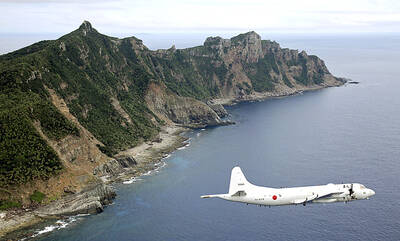NTT DoCoMo Inc is turning to Europe as the market with the greatest potential to expand its most popular Internet service because carriers there are more likely to embrace it than those in Asia, a DoCoMo executive said.
"I see more potential in Europe," said Takeshi Natsuno, general manager of strategy for i-mode, which offers cellphone users online shopping and entertainment. "European carriers are trying to distinguish themselves by providing unique services." I-mode subscribers in Europe will probably top 1 million by the end of next year, compared with about 100,000 at the end of August, Natsuno said in an interview. Japan's largest mobile-phone operator has attracted 35.5 million i-mode users, or one third of Japan's population, in less than four years of service.
DoCoMo is betting on speedy acceptance for i-mode in Europe, where an earlier mobile Internet technology called Wireless Application Protocol, or WAP, failed to take off with users.
The company has invested about Japanese Yen 1.9 trillion (US$15 billion) abroad in foreign carriers such as KPN Mobile NV of the Netherlands to promote use of i-mode, as well as a standard it helped develop for high-speed wireless Internet access that will be started in Europe over the next two years.
DoCoMo began offering international i-mode services in March.
I-mode is available through KPN Mobile, its units E-Plus Mobilefunk GMBH in Germany, BASE in Belgium, KG Telecommunications in Taiwan and Bouygues Telecommunications in France.
Next year, the company will license i-mode-related technology to Telefonica Moviles SA, Spain's largest mobile-phone company.
The agreement is the second in which DoCoMo is providing technology available to a foreign partner without buying a stake.
Europe looks more lucrative because carriers there have already boosted revenues by providing services that allow cellphone subscribers to play games and read newspapers on the move, DoCoMo's Natsuno said.
In October, DoCoMo rival Vodafone Group Plc, the world's largest mobile-phone company, began a service similar to DoCoMo's i-mode that allows users to send pictures and play games under the Vodafone Live brand.
Rather than hurting DoCoMo's chances in Europe, Live may actually help the Japanese phone carrier by introducing Web-based phone services to a larger audience, Natsuno said.
Live "should be a plus for us because the more people that recognize the fun elements of the service, the easier we can sell the i-mode concept," Natsuno said.
"We have the odds in our favor" because Vodafone can't team up with its rival carriers in Europe without taking an equity stake, he added. Natsuno is in Hong Kong, attending ITU Telecom Asia 2002, an industry gathering.
Investors, already disappointed with DoCoMo's global strategy after the company wrote off more than half of its investments in carries such as AT&T Wireless Services Inc, are less enthusiastic about DoCoMo's chances in Europe or elsewhere.
DoCoMo's shares have tumbled 18 percent since the beginning of the year, the second-worst performer on the six-member Topix Communications Index.

MISINFORMATION: The generated content tends to adopt China’s official stance, such as ‘Taiwan is currently governed by the Chinese central government,’ the NSB said Five China-developed artificial intelligence (AI) language models exhibit cybersecurity risks and content biases, an inspection conducted by the National Security Bureau (NSB) showed. The five AI tools are: DeepSeek, Doubao (豆包), Yiyan (文心一言), Tongyi (通義千問) and Yuanbao (騰訊元寶), the bureau said, advising people to remain vigilant to protect personal data privacy and corporate business secrets. The NSB said it, in accordance with the National Intelligence Services Act (國家情報工作法), has reviewed international cybersecurity reports and intelligence, and coordinated with the Ministry of Justice Investigation Bureau and the National Police Agency’s Criminal Investigation Bureau to conduct an inspection of China-made AI language

BOOST IN CONFIDENCE: The sale sends a clear message of support for Taiwan and dispels rumors that US President Donald Trump ‘sold out’ the nation, an expert said The US government on Thursday announced a possible sale to Taiwan of fighter jet parts, which was estimated to cost about US$330 million, in a move that an expert said “sends a clear message of support for Taiwan” amid fears that Washington might be wavering in its attitude toward Taipei. It was the first announcement of an arms sale to Taiwan since US President Donald Trump returned to the White House earlier this year. The proposed package includes non-standard components, spare and repair parts, consumables and accessories, as well repair and return support for the F-16, C-130 and Indigenous Defense Fighter aircraft,

CHECKING BOUNDARIES: China wants to disrupt solidarity among democracies and test their red lines, but it is instead pushing nations to become more united, an expert said The US Department of State on Friday expressed deep concern over a Chinese public security agency’s investigation into Legislator Puma Shen (沈伯洋) for “secession.” “China’s actions threaten free speech and erode norms that have underpinned the cross-strait ‘status quo’ for decades,” a US Department of State spokesperson said. The Chongqing Municipal Public Security Bureau late last month listed Shen as “wanted” and launched an investigation into alleged “secession-related” criminal activities, including his founding of the Kuma Academy, a civil defense organization that prepares people for an invasion by China. The spokesperson said that the US was “deeply concerned” about the bureau investigating Shen

DISPUTE: A Chinese official prompted a formal protest from Tokyo by saying that ‘the dirty head that sticks itself out must be cut off,’ after Takaichi’s Taiwan remarks Four armed China Coast Guard vessels yesterday morning sailed through disputed waters controlled by Japan, amid a diplomatic spat following Japanese Prime Minister Sanae Takaichi’s comments on Taiwan. The four ships sailed around the Senkaku Islands — known as the Diaoyutai Islands (釣魚台) to Taiwan, and which Taiwan and China also claim — on Saturday before entering Japanese waters yesterday and left, the Japan Coast Guard said. The China Coast Guard said in a statement that it carried out a “rights enforcement patrol” through the waters and that it was a lawful operation. As of the end of last month,